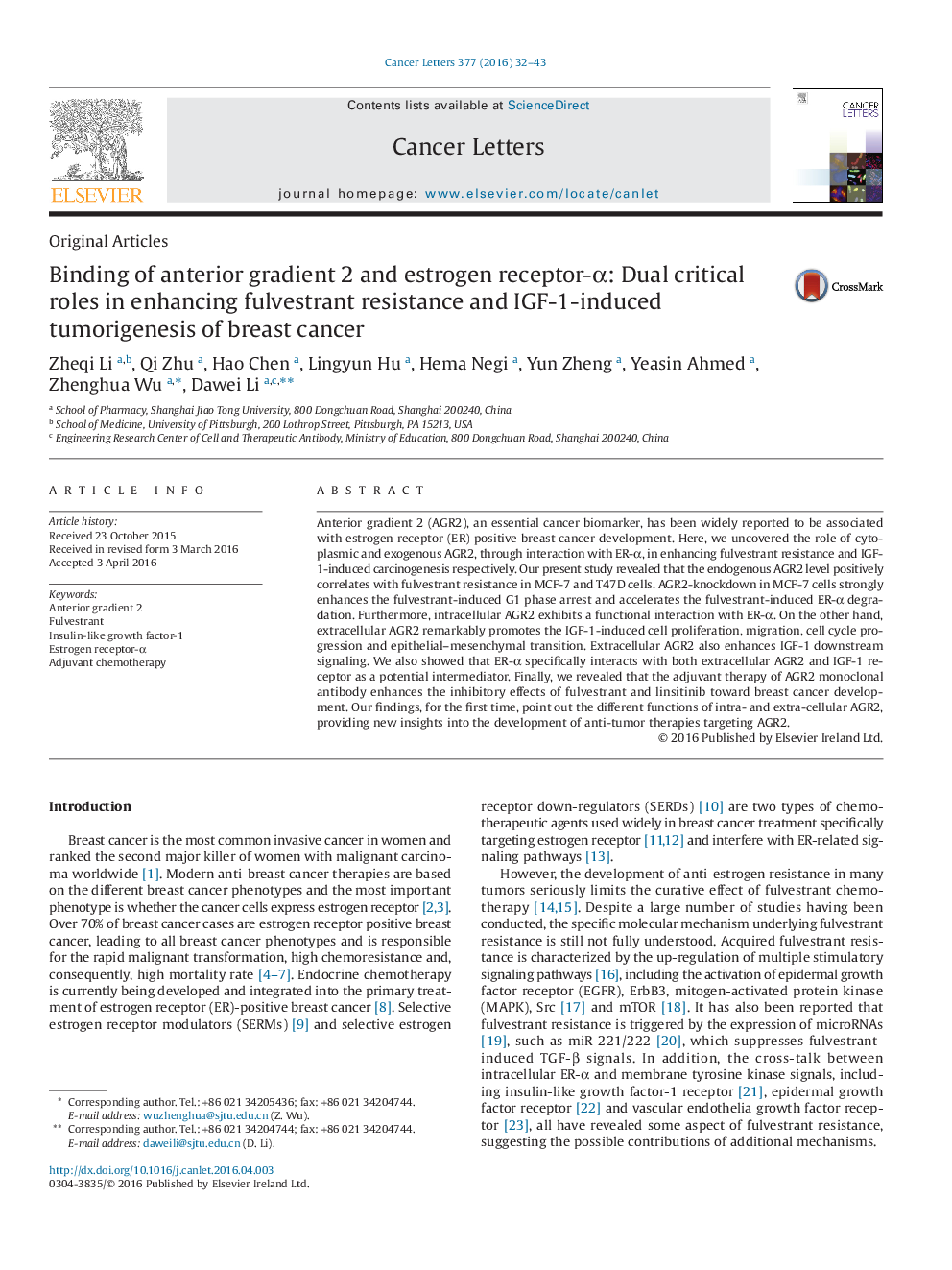| Article ID | Journal | Published Year | Pages | File Type |
|---|---|---|---|---|
| 2112318 | Cancer Letters | 2016 | 12 Pages |
•Intracellular AGR2 binds to ER-α to protect it from degradation by fulvestrant.•Extracellular AGR2 enhances IGF-1 signaling through the mediation of ER-α.•An AGR2-blocking antibody was prepared as a potential adjuvant drug for chemotherapy.
Anterior gradient 2 (AGR2), an essential cancer biomarker, has been widely reported to be associated with estrogen receptor (ER) positive breast cancer development. Here, we uncovered the role of cytoplasmic and exogenous AGR2, through interaction with ER-α, in enhancing fulvestrant resistance and IGF-1-induced carcinogenesis respectively. Our present study revealed that the endogenous AGR2 level positively correlates with fulvestrant resistance in MCF-7 and T47D cells. AGR2-knockdown in MCF-7 cells strongly enhances the fulvestrant-induced G1 phase arrest and accelerates the fulvestrant-induced ER-α degradation. Furthermore, intracellular AGR2 exhibits a functional interaction with ER-α. On the other hand, extracellular AGR2 remarkably promotes the IGF-1-induced cell proliferation, migration, cell cycle progression and epithelial–mesenchymal transition. Extracellular AGR2 also enhances IGF-1 downstream signaling. We also showed that ER-α specifically interacts with both extracellular AGR2 and IGF-1 receptor as a potential intermediator. Finally, we revealed that the adjuvant therapy of AGR2 monoclonal antibody enhances the inhibitory effects of fulvestrant and linsitinib toward breast cancer development. Our findings, for the first time, point out the different functions of intra- and extra-cellular AGR2, providing new insights into the development of anti-tumor therapies targeting AGR2.
